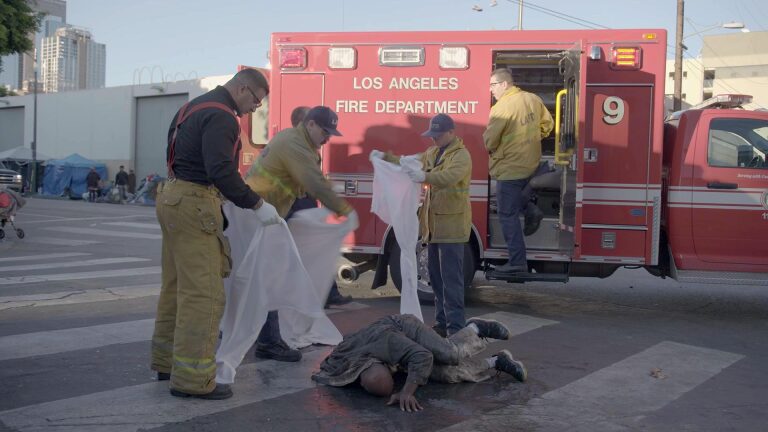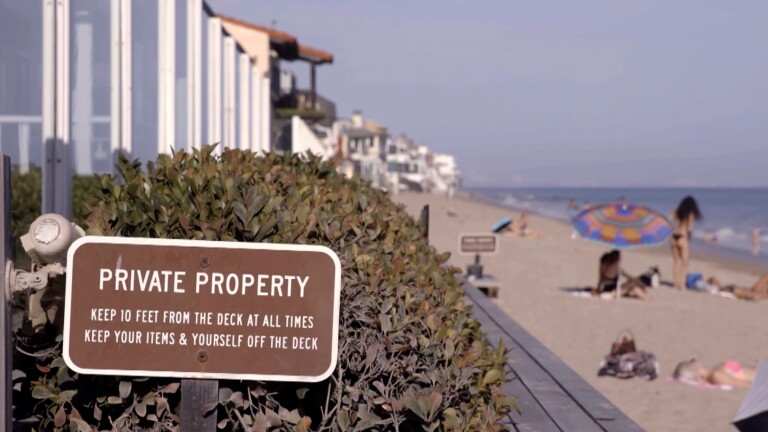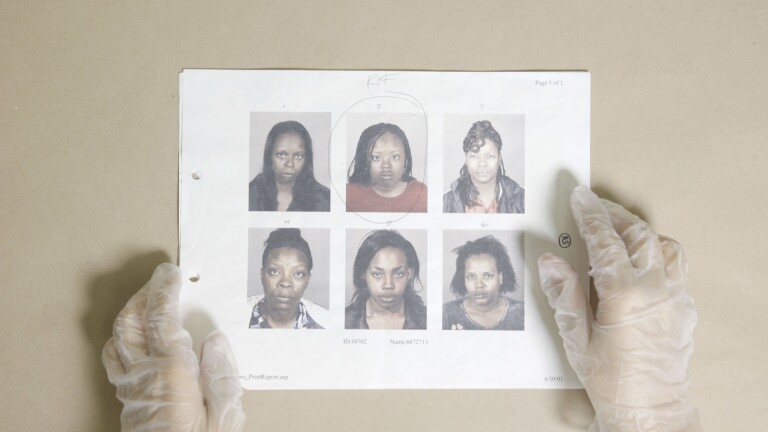
L.A. Says No 'Puppy Mills,' But Not All Pet Stores Are Rolling Over
Creating life for profit -- animal breeders do it every day. Most do it responsibly. Some don't. And that's when bad things happen. Take those puppies, for example, in the pet store window. A great many of them entered this world under terrible conditions, and some won't live very long. Los Angeles is taking action. Soon you won't be able to buy "breeder" puppies in L.A. pet stores. It's a drastic shift, and not everyone is happy about it. Jennifer London brings us both sides.
TRANSCRIPT:
Jennifer London/Correspondent: An old fashioned, romantic idea that has not only fallen out of fashion -- buying a puppy at a pet store -- but one that will soon be illegal in the city of Los Angeles.
Elizabeth Oreck/Best Friends Animal Society: We know that it’s certainly a risk when someone walks into a pet store and purchases an animal. Because of the way they are bred, we know that they are very often sick.
London: Elizabeth Oreck is the national manager for the Puppy Mill Initiatives with Best Friends Animal Society. Best Friends runs a no-kill shelter in Mission Hills.
Oreck says people should get their dogs and cats from an animal shelter or a rescue instead of pet stores, where most often the animals come from large-scale commercial breeders.
Oreck: We continue to flood the market with puppies and with kittens when we don’t have enough homes for the ones that we have, and so we’re having to kill so many healthy, adoptable animals.
London: The L.A. City Council agreed and recently passed an ordinance to ban the sale of dogs, cats and rabbits from commercial breeders in pet stores.
Oreck: Those are the animals that are dying in the highest numbers in our shelters. And at the same time allowing for pet stores to adopt out rescued animals from shelters in their stores.
London: L.A. now joins a growing number of cities that have enacted similar bans. Albuquerque, New Mexico was the first in 2006, but L.A. is now the largest city to take action. The ordinance passed late last year, but pet stores have until June to phase out the sale of their rabbits, kittens and puppies.
This is Lucy [pictured in video]. Lucy’s in the cage. And this is Eric. Eric is very affectionate. He’s an 8-week-old terrier puppy who recently came to the shelter. And Eric and Lucy are the reason for the new ban, according to animal shelters and the city council.
When the ban is enforced after the grace period, it means that pet stores will sell a puppy like Eric or a puppy like Lucy, instead of getting their puppies from a commercial breeder. L.A. City Councilmember Paul Koretz, who introduced the ban, says most often commercial breeders are nothing more than puppy mills.
Paul Koretz/City Councilmember: Puppy mills and kitten mills breed their animals in terrible conditions and very cruel conditions. Those animals often wind up with medical problems once they are born because of inbreeding and other problems.
London: Problems Koretz knows from firsthand experience. The puppy he bought from a pet store years ago ended up getting sick.
Koretz [looking at photos]: This is my daughter when she was about a year and a half old and my dog Miley, who was a bichon frise that came from a pet store in West Hollywood.
London: That was going to be my question, where you got Miley.
Koretz: And it turned out to be a puppy mill dog, but we didn’t know anything about it at the time.
London: After surgery Miley went on to a live a long, healthy life. But tens of thousands of dogs in L.A. aren’t so lucky.
Oreck: Because of the way these puppies are manufactured in these facilities, they’re in-bred, they’re over-bred, they’re irresponsibly bred. Most of the animals that come out of these facilities are sick. And so for the consumers, this results in the purchase of an animal that could incur a lot of veterinary expenses, and not everyone is equipped to handle that. And so a lot of these animals end up in our already over-crowded shelters.
London: Shelters that are splitting at the seams. In 2011, at L.A. city shelters, 22,504 cats were brought in. More than 13,000 had to be euthanized. Thirty-five thousand-plus dogs were brought in. More than 9,400 were euthanized. And those numbers don’t include humane societies, or rescue groups.
Oreck: All of this puppy mill pervasiveness is our problem, because all of us are subsidizing the housing and euthanizing of all of these animals. So it really begs the question, why do we continue to manufacture a product -- and in this case we are talking about a living, breathing, sentient creature -- for a market that’s already so overcrowded that we have to kill the surplus?
London: Do you know the answer to that question?
Oreck: It’s profit. It's profit motivation. I mean, that is why breeders are breeding, because there’s a demand.
London: Which brings us back to that doggy in the window. The ASPCA says 99 percent of puppies sold in stores come from puppy mills.
This pet store in Sherman Oaks says that they are the 1 percent and the new law targets them unfairly. Evelyn Mazor’s family runs Puppy and Me Pet Store. They sell small to medium pure-bred and designer dogs.
London: Evelyn, why do you think this new law infringes on your rights at a business owner and the rights of a potential customer?
Mazor: Firstly, this country is founded on choice. People have always been allowed to do what they choose. That’s a basic human right. And what this law does, it takes away the human right to choose where to get their dogs from.
London: Evelyn, where do you get most of your dogs?
Mazor: We get them from different breeders out of state, mainly in the Mid-West.
London: And are those breeders puppy mill breeders?
Mazor: Depends who you ask. If you ask the activists, then yes, we do get them. But if you ask us, who actually know where the dogs come from, then no, they absolutely do not. We carry puppies from reputable breeders who care about the dogs they sell.
London: Not true, says the protestors, who have been marching and yelling outside Puppy and Me for the past five years, claiming its puppies do come from puppy mills.
London: Would a reputable breeder sell their puppies to a pet store?
Oreck: Absolutely not. Responsible breeders do not sell to pet stores because they don’t sell to third parties.
London: Mazor stands by her puppies and says they have no intention of complying with the ordinance.
Mazor: We will continue to sell puppies from our reputable breeders. People will still be allowed to go to shelters and rescues if they do so choose, but they will also be able to come here. We will not just fold away.
London: You’ll be breaking the law.
Mazor: But what the city council is doing is breaking the law. They are breaking the law on our constitutional right to own a business. They are breaking the law to dictate to people where to go, what to buy and how to buy it.
London: Are you willing to go out of business rather than comply with this new law?
Mazor: I think if we start selling dogs from rescues and shelters, we will go out of business.
London: Rene Karapedian runs pet stores in Burbank and Glendale. He used to sell dogs from commercial breeders even when he knew the puppies were sick.
Rene Karapedian/Pet Rush Pet Store: And this was a $1,000 profit for me. Guess what? I would sell them, but yet still, this is a dog that was not fit to be sold.
London: Karapedian has since switched over to what he calls the "humane model" -- animal adoption instead of animal sales.
Karapedian: Well, number one, most of these shelters that I go pick up dogs from, they are putting down anywhere from 50 to 70 dogs a day. So this is one way to stop that from happening.
London: He says business has never been better.
Karapedian: We now adopt out over 300 dogs a year compared to the 100 we would sell.
London: Proof Karapedian says that pet stores can stop selling puppies from puppy mills and still make money.
Karapedian: The money comes from the services, the products that goes with these rescue dogs, and the return customers that come back because they want to support where they got their young dog or adult dog from.
London: Do you have any problems with local government saying what you can or cannot sell? Do you think that’s overreaching?
Karapedian: Well, the good thing about local government is that it's governed by the local people. It's the people that tell the local government what they want in their city. Without it, they will not pass anything.
London: Elizabeth Oreck says the ban is a great first step, and the hope is more cities around the country will take similar action. But until that happens, she says, people can do their part to help put puppy mills out of business.
Oreck: If people really knew where these cute pet store puppies in the window were coming from, I think they would really think twice about supporting that industry through their consumer choices.






















